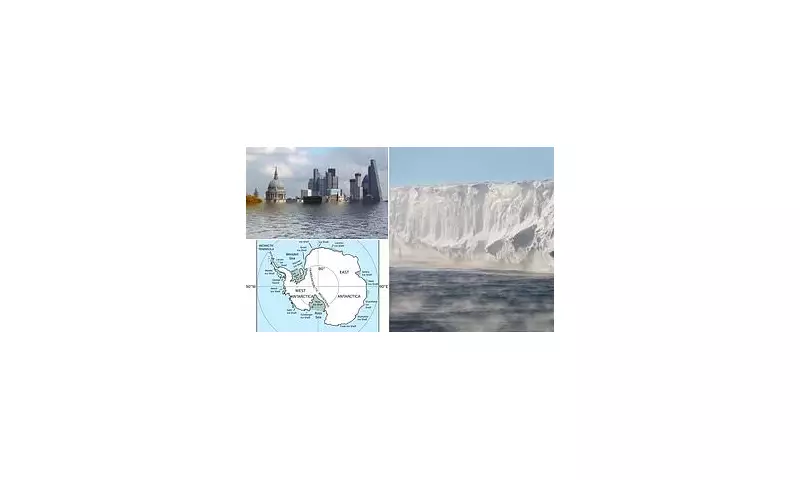
A dire new scientific study has delivered a sobering verdict: the irreversible collapse of a massive section of Antarctica's ice has begun, and it is too late to stop it. Research from the British Antarctic Survey (BAS) confirms that the West Antarctic Ice Sheet (WAIS) has passed a point of no return, initiating a slow-motion collapse that will inevitably reshape the world's coastlines for centuries.
The research, published in the journal Nature Climate Change, concludes that current rates of ocean warming, driven by human-induced climate change, mean the loss of the entire WAIS is now unavoidable. This process will unleash a relentless rise in global sea levels, even if the world makes drastic cuts to greenhouse gas emissions today.
The Unstoppable Chain Reaction
Scientists have long feared this scenario. The issue lies with the geography of the ice sheet. Much of the WAIS is grounded on bedrock that sits far below sea level, making it highly vulnerable to warm ocean currents. As these warmer waters melt the floating ice shelves that act as crucial plugs, the land-based glaciers behind them are destabilised and accelerate their flow into the sea.
This process, known as Marine Ice Sheet Instability, is a self-sustaining feedback loop. As the grounding line—where the ice first loses contact with the bedrock—retreats, it exposes taller and thicker walls of ice to the ocean, which then melt even faster. The new study confirms this loop is now active and cannot be halted.
What This Means for Our Future Coasts
The complete melt of the WAIS holds enough frozen water to raise the global average sea level by a staggering five metres (over 16 feet). While this total collapse will take hundreds of years, the impacts will be felt much sooner.
"The consequences of this irreversible retreat will be felt for generations," the report states. Coastal cities and communities worldwide must now prepare for a future where sea level rise is measured in metres, not millimetres. This will exacerbate flooding, erode shorelines, and threaten the existence of low-lying areas.
A Glimmer of Hope Amidst the Gloom
While the focus of this study is on the unstoppable nature of the melt, the researchers stress one critical message: this is not a reason to abandon climate action. Slashing emissions remains paramount.
Urgently cutting fossil fuel use can still slow the rate of collapse, giving societies far more time to adapt and build defences. Furthermore, it could prevent the activation of other tipping points in the climate system, such as the melting of the vastly larger East Antarctic Ice Sheet, which would trigger a cataclysmic sea level rise of over 50 metres.
The collapse of the West Antarctic Ice Sheet is a stark reminder that the consequences of our actions today are locked in for millennia. The question is no longer if the seas will rise, but how fast, and whether we are prepared for the new world it will create.





